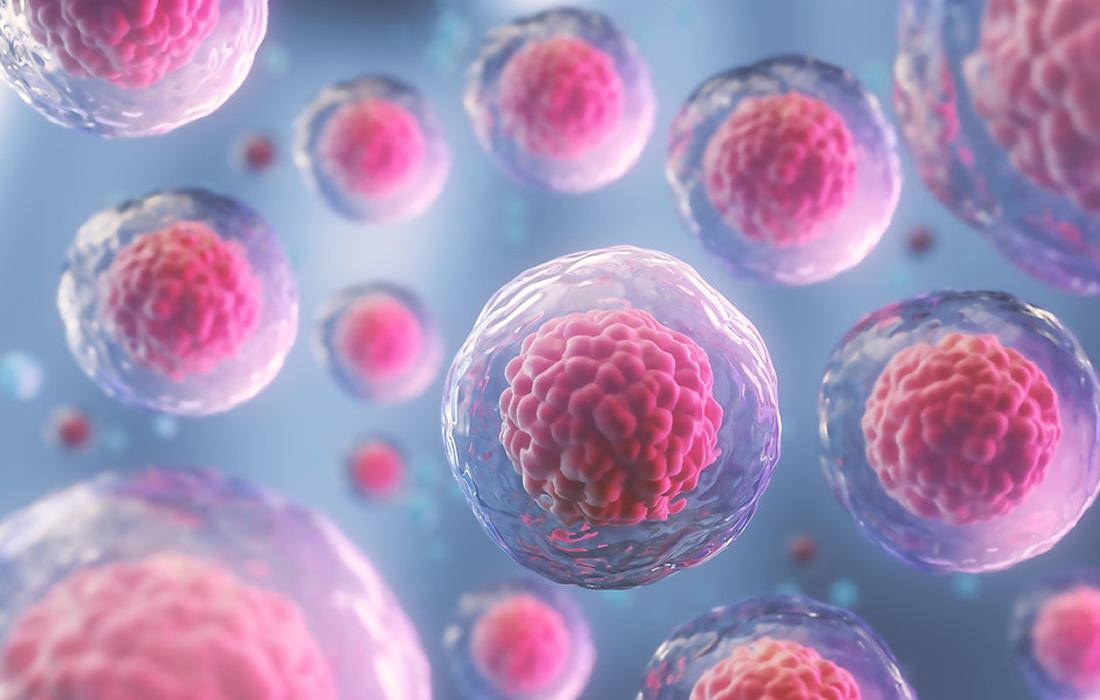Regenerative Medicine News and General Information
Zinc Mobilization Linked with Mechanism of Stem-Cell Regulation
Human embryonic stem cells (hESCs) and human induced pluripotent stem cells (hiPSCs) possess the ability for unlimited self-renewal and differentiation to yield cells derived from the three germ layers . Upon adding specific growth factors, hESCs/iPSCs initiate differentiation and are converted into specific lineages. Recent progress in this field has successfully generated many functionally differentiated cell types and can be useful as alternative cell sources for cell replacement therapy, disease modeling, and drug discovery
Stem cells possess a unique metabolic feature in which a change in their metabolic signatures modulates their epigenetic profile, while mouse ESCs exhibit unique threonine-dependent catabolism, threonine dehydrogenase is a pseudogene in humans. hiPSCs show a high requirement for methionine metabolism.
Methionine and threonine are metabolized to generate S-adenosylmethionine (SAM), and maintain the stem cell pluripotency. Methionine deprivation in the medium causes a reduction in intracellular SAM, thus rendering PSCs in a state potentiated for differentiation.
What’s the missing piece of Methionine Mechanism regulation?
One area of focus in PSC research is diabetes treatments. A common characteristic of diabetes is having ineffective or overworked pancreatic β cells — cells that produce insulin. Controlling the differentiation of PSCs to produce β cells is one of the major goals of research in the field. Previous studies have shown that methionine, an amino acid, plays a major role in the differentiation of PSCs. But the precise mechanism behind this has been, thus far, unknown.
To find the missing piece of this puzzle, a team of researchers from Japan, led by Prof. Shoen Kume from Tokyo Institute of Technology (Tokyo Tech), delved deeper into the methionine-mediated regulation of PSC pluripotency. The researchers revealed that cellular zinc (Zn) content played a crucial role in stem cell differentiation.
In this study, the research team first cultured PSCs in a methionine-deprived environment. They found that methionine-deprivation not only reduced the intracellular protein-bound Zn levels in cells, but that it also upregulated SLC30A1, a gene that produces an important Zn transport protein.
The team then cultured hiPSCs under low Zn concentrations. They discovered that a Zn-deprived medium partially mimicked methionine deprivation and led to a decrease in cell growth and an increase in potentiated differentiation.
They also found that the Zn deprived state also altered the methionine metabolism profile and eliminated undifferentiated hiPSCs. These results indicated that methionine deprivation-induced differentiation takes place by lowering the Zn content in cells.
These findings indicate a link between Zn mobilization and methionine-induced potentiation of PSCs and provide clear direction for future research in the field of stem cell therapies.
SOURCE:
Erinn Zixuan Sim, Takayuki Enomoto, Nobuaki Shiraki, Nao Furuta, Soshiro Kashio, Taiho Kambe, Tomonori Tsuyama, Akihiro Arakawa, Hiroki Ozawa, Mizuho Yokoyama, Masayuki Miura, Shoen Kume (July 9, 2022). Methionine metabolism regulates pluripotent stem cell pluripotency and differentiation through zinc mobilization. Cell Reports. Retrieved from : https://www.cell.com/cell-reports/fulltext/S2211-1247(22)00926-3?_returnURL=https%3A%2F%2Flinkinghub.elsevier.com%2Fretrieve%2Fpii%2FS2211124722009263%3Fshowall%3Dtrue
IMAGE:

